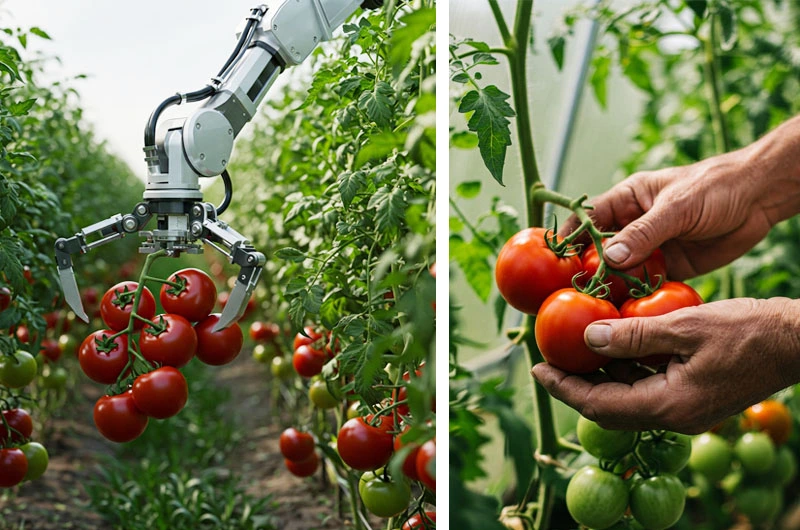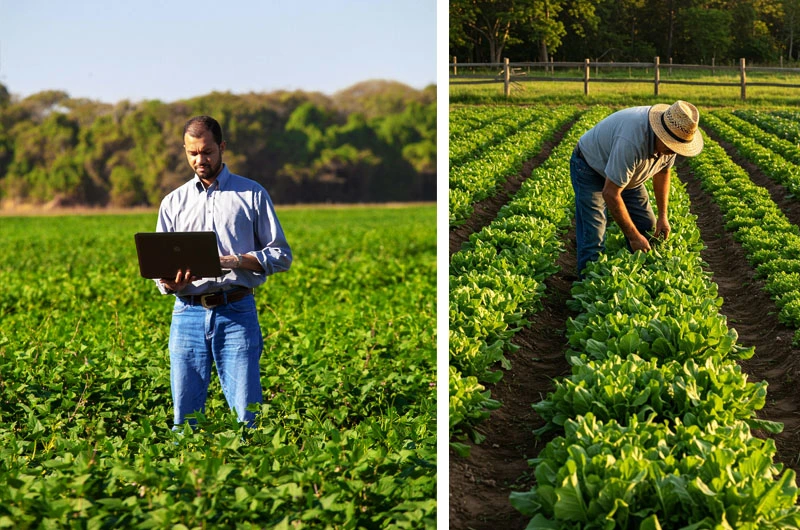Smart Farming Explained: Benefits & Technologies
The world’s population is growing, and the demand for food is constantly increasing. To meet this challenge while ensuring sustainable practices, the agricultural sector is undergoing a significant transformation. At the forefront of this revolution is smart farming, a modern approach that leverages advanced technologies to optimize every aspect of agricultural operations. This article delves into the core concepts of smart farming, its key technologies, benefits, and the future it holds for the agricultural industry.
What Exactly is Smart Farming?
At its heart, smart farming involves the integration of information and communication technologies (ICT) into agriculture. It’s about using data-driven insights to make informed decisions, leading to more efficient resource management, reduced environmental impact, and ultimately, higher profitability for farmers. Instead of relying on traditional, often generalized practices, smart farming enables a more precise and tailored approach to crop and livestock management.
Key Technologies Driving Smart Farming:
Several cutting-edge technologies are the backbone of smart farming. Here are some of the most prominent:
Internet of Things (IoT) Sensors:
- These devices collect real-time data on various parameters like soil moisture, temperature, humidity, light levels, and nutrient levels. This granular data provides a comprehensive understanding of the farm environment.
Drones and Unmanned Aerial Vehicles (UAVs):
- Equipped with cameras and sensors, drones can survey large areas quickly, providing valuable insights into crop health, pest infestations, irrigation issues, and even livestock monitoring.
Robotics and Automation:
- Agricultural robots are increasingly being used for tasks like planting, weeding, harvesting, and even milking, reducing labor costs and improving efficiency.
Artificial Intelligence (AI) and Machine Learning:
- AI algorithms analyze the vast amounts of data collected from sensors, drones, and other sources to identify patterns, predict yields, detect diseases, and optimize resource allocation.
Big Data Analytics:
- Processing and analyzing large datasets from various sources allows farmers to gain valuable insights for better decision-making, such as predicting market trends and optimizing supply chains.
GPS and GIS Technologies:
- Global Positioning Systems (GPS) and Geographic Information Systems (GIS) enable precise mapping of fields, variable rate application of fertilizers and pesticides, and accurate tracking of machinery.
Farm Management Software:
- These platforms integrate data from various sources, providing farmers with a centralized dashboard to monitor operations, analyze performance, and make informed decisions.

The Abundant Benefits of Embracing Smart Farming:
Adopting smart farming practices offers a wide range of advantages for farmers, the environment, and consumers:
- Increased Crop Yields and Quality: Precise monitoring and management lead to healthier crops and higher yields.
- Optimized Resource Management: Efficient use of water, fertilizers, and pesticides reduces waste and lowers operational costs.
- Reduced Environmental Impact: Minimizing the use of chemicals and optimizing resource consumption contributes to more sustainable agricultural practices.
- Lower Production Costs: Automation and optimized resource allocation can significantly reduce labor and input costs.
- Improved Farm Management: Real-time data and analytics provide farmers with better insights for making timely and informed decisions.
- Enhanced Animal Welfare: Smart monitoring systems can track animal health and behavior, leading to better care and management.
- Greater Profitability: Higher yields, lower costs, and improved quality ultimately translate to increased profitability for farmers.

Navigating the Challenges of Implementing Smart Farming:
While the benefits of smart farming are significant, there are also challenges to consider:
- High Initial Investment Costs: Implementing advanced technologies can require a substantial upfront investment.
- Lack of Technical Expertise: Farmers may need training and support to effectively utilize new technologies.
- Infrastructure Limitations: Reliable internet connectivity and power supply can be challenges in some rural areas.
- Data Security and Privacy Concerns: Protecting the vast amounts of data collected is crucial.
- Integration Complexity: Integrating different technologies and systems can be complex.
The Future is Smart: Trends Shaping Agriculture:
The future of agriculture is undoubtedly intertwined with smart farming. We can expect to see even greater advancements and adoption of these technologies, including:
- Increased Automation and Robotics: More sophisticated robots will handle a wider range of tasks.
- Greater Integration of AI and Machine Learning: AI will play an even more critical role in predictive analytics and autonomous decision-making.
- Focus on Sustainability and Precision Agriculture: Technologies will be increasingly used to optimize resource use and minimize environmental impact.
- Improved Connectivity and Data Sharing: Enhanced connectivity will enable seamless data exchange and collaboration across the agricultural value chain.
Smart farming is no longer a futuristic concept but a present-day reality that is revolutionizing the agricultural industry. By embracing these innovative technologies, farmers can achieve greater efficiency, sustainability, and profitability, ensuring a secure and resilient food supply for the future. As technology continues to advance and become more accessible, smart farming will undoubtedly play an increasingly vital role in shaping the future of agriculture worldwide.

